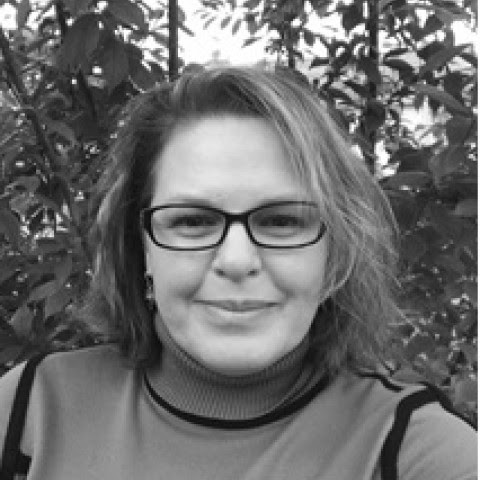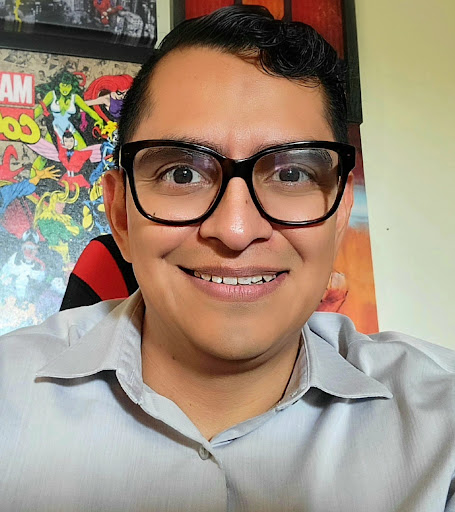Join us for Red Hat Data Science Day 2022
Organizations of all shapes and sizes are harnessing the power of Artificial Intelligence (AI) and Machine Learning (ML) to drive innovation, improve their ability to compete, and increase customer and employee satisfaction. Although access to the compute and storage capabilities required to gain insights from data has never been more available than it is today, getting started can be daunting.
Red Hat® Data Science Day, in partnership with Intel, will bring together data practitioners and experts across industries to discuss how to leverage the immense power of data, analytics, and AI/ML to build and deploy cloud-native applications at scale.
Join us on Thursday, September 22, 2022 in-person in Atlanta, GA.
Location: TSQ Social Club - Tech Square ATL, 848 Spring Street NW, Atlanta, Georgia, 30308
Date: September 22, 2022
Time: 11:30 AM – 6:00 PM ET
Any questions? Please email infrastructure@redhat.com
| Important Notice | |
|
|
| SESSION | TIME |
|---|---|
| Lunch & Registration | 11:30 AM - 12:30 PM |
| Welcome Michael Solberg, Chief Field Architect, Red Hat |
12:30 PM - 12:35 PM |
| Dancing with Data Science and Security on the Edge Audrey Reznick, Senior Principal Software Engineer, Red Hat Realizing when mechanical devices (e.g. pump data, manufacturing devices) are having mechanical issues and are showing signs of failure (via sensors) are important items to know when you need to keep your mechanical devices running 24/7. Therefore creating failure prediction algorithms and/or model(s) are essential parts of your mechanical equipment maintenance toolbox. But how do you get started? Is it hard to curate sensor data? How do you create, train and deploy failure prediction algorithms and models? What kind of platform do you use for these items? Failure prediction in real time on time series data (gathered by sensors) can be realized with the use of Open Source tools. We will deliver an overall view of how to start with the generation of new raw sensor data (typically captured by an Edge device), create a failure prediction model and end up with a real time graph that shows alerts warning that a failure is imminent for a mechanical device. But that’s not where the story ends. We also need to address ‘security’. From transferring and storing data to working with models, security is vital to working with sensors at the Edge. Taking lessons learned from Cyber Security Crime we will discuss how Edge and IoT hardware can be easy to exploit. We will then outline what security fundamentals are important to have in place along with common technology mitigations. Join us while we take you through creating data science applications on the edge and how we secure data, models and edge devices. |
12:35 PM - 1:30 PM |
|
Using AIOps to Speed up CI/CD processes
Aakanksha Duggal, Software Engineer, Red Hat Oindrilla Chatterjee, Senior Data Scientist, Red Hat
Applying AI to IT Operations(AIOps) is the thing of the hour. Most IT organizations generate a large amount of operations data in the process of operating their software and are beginning to embrace the adoption of AI to support IT operations. Yet, real-world operations data is rarely available as a public dataset. Moreover, most AIOps tools out there are closed source.
In this session, the speakers introduce AI4CI(AI for Continuous Integration), a set of open source AIOps tools involving open operations data from Kubernetes CI/CD platforms. They demonstrate a set of Jupyter Notebooks that are automated using Kubeflow Pipelines into reproducible workflows that collect data from open CI/CD data sources, calculate and visualize key performance indicator metrics, and build AI/ML services to support operations. They also introduce how to build and deploy ML services which can answer questions like “how can we optimize the running time of our tests and prevent bottlenecks in our CI/CD pipeline”, “how to an ML model to efficiently triage a new issue or a pull request”, and “how to preemptively detect patterns in failing tests or builds by looking at the logs”. By making the tools and relevant data openly accessible, AI4CI aims to cultivate an open source community that fosters collaboration between data scientists and DevOps engineers. By the end of the talk, the audience will learn how to build AIOps monitoring tools and automated metric dashboards that can help provide more visibility into their tests to better support their CI/CD processes. |
1:30 PM - 2:25 PM |
|
The Data Mesh and why consider the architectural paradigm for your organization
Robert Sedor, Chief Architect for Application Development, Red Hat
Most companies have been working to modernize their applications. And yet, when asked, "what do you view as the main driver of innovation at your company?" The response is nearly always that data is the primary driver of innovation. In this talk, we will look at what a data mesh is and how we can transition from a monolithic approach to data, to an approach which can become the data platform for our microservices as we modernize our application architectures.
|
2:35 PM - 3:30 PM |
|
From Business Objectives to Monitoring Dashboards for MLOps using OC
Diego Torres Fuerte, Intelligent Application Practice Architect, Red Hat In this session, we will talk about the evolution from Dashboards to Business Intelligence, and Operational Intelligence; and how everything is evolving into a new framework where we use AI/ML that also requires a higher degree of monitoring. We will explore the amount of monitoring required by MLOps, and how Openshift can agnostically host the monitoring applications required to keep an eye on how the operation is doing. This session will conclude with an example of Grafana application hosted in an Openshift environment.
|
3:30 PM - 4:25 PM |
|
Scale AI applications across cloud platforms
John Andersen, Vice President, Solutions Consulting and Architecture, CognitiveScale
CognitiveScale’s Cortex platform helps enable a robust AI Engineering discipline by seamlessly scaling AI applications across cloud platforms via RedHat’s OpenShift. The Cortex platform is embedded on OpenShift deployments providing trust and governance across all models and applications. Cortex brings multiple data models together, composes the AI solution, orchestrates execution, deploys it on any cloud, and optimizes the business impact. This allows for business and IT leaders to work together and leverage a platform that deploys repeatable patterns for AI solution success.
|
4:25 PM - 4:55 PM |
| Closing + After Party | 5:00 PM - 6:00 PM |

Senior Principal Software Engineer, Red Hat
Audrey is a Senior Principal Software Engineer in the Red Hat Cloud Services - OpenShift Data Science team focusing on managed services, AI/ML workloads and next-generation platforms. She has been working in the IT Industry for over 20 years in full stack development to data science roles.
As a former technical advisor and data scientist Audrey has been instrumental in educating data scientists and developers about what the OpenShift platform is and how to use OpenShift containers (images) to organize, develop, train and deploy intelligent applications using MLOps. She is passionate about Data Science and in particular the current opportunities with AIML at the Edge and Open Source technologies.

Software Engineer, Red Hat
Aakanksha is a Data Scientist in the Emerging Technologies group in the Office of the CTO at Red Hat. She is a part of the Data Science team and works in developing open source software that uses AI and machine learning applications to solve engineering problems.

Senior Data Scientist, Red Hat
Oindrilla is a Senior Data Scientist at Red Hat, in the Office of the CTO working on emerging trends and research in ML and AI. She spent the past year developing open source AI applications for CI data.

Chief Architect for Application Development, Red Hat
Rob is a Red Hat Chief Architect for Application Development. Rob has worked as the lead architect and developer on projects such as the eBay Shipping API and has developed solutions including tracking RFID tags in casino chips and acoustic gunshot detection and enjoys working with Go, Python and Rust.

Intelligent Application Practice Architect, Red Hat
Diego is an Intelligent Application Practice Architect with a taste for processes, automation, and business rules. In his last engagements he helped Telco and FSI customers succeed in Business Automation projects, and now he is exploring the effects of AI/ML applications to help businesses reach their goals. He enjoys reading technical materials, blogs, and is always eager to learn. When he is not learning about new ways to help customers with technology, he is playing video games, from Tetris to Warzone.

Vice President, Solutions Consulting and Architecture, CognitiveScale
John Andersen is CognitiveScale’s VP, Solutions Consulting and Architecture. He is a proven technical leader with experience in engineering, customer success, and sales. John has hands-on experience building & leading successful large-scale enterprise solutions that have scaled to millions of end users, as well as industry experience working with large enterprises to influence AI roadmaps through personalization, trusted AI, and repeatable architectural framework initiatives. Prior to John's tenure at CognitiveScale, he was part of the IBM Watson Labs team as a Technical Architect & NLP Developer focused on Embodied Cognition.
Location:
Tech Square ATL Social Club
848 Spring St NW
Atlanta Georgia, 30308 United States
Time: 11:00 AM - 6:00 PM ET